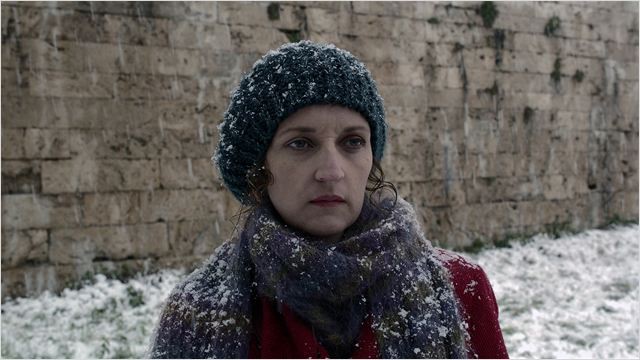Jasmila Zbanic is one of Europe’s most promising young directors. Her 2006 film Land of My Dreams won the Golden Bear at the Berlin international Film Festival, and her 2010 follow-up, On the Path, was nominated for the same award. She is also a former puppeteer at the Bread and Puppet Theater in Vermont and the founder of the artists’ association DEBLOKADA.
Zbanic’s latest film, For Those Who Can Tell No Tales, follows an Australian tourist as she discovers the silent legacy of wartime atrocities in a seemingly idyllic town on the border of Bosnia and Serbia. On a summer holiday through Bosnia-Herzegovina, Kym is the picture of an average tourist: visiting the sites promoted in her guidebook and keeping a video diary. Yet her stay at a hotel in Visegrad inexplicably gives way to anxiety and sleepless nights. Upon returning home to Australia, she finds out that the Vilina Vlas hotel was used as a rape camp during the war. Questions around the region’s atrocities begin to haunt her, as does the question of why the guidebook, or the town itself, made no mention of the event. The testimonies she later finds online compel her to return to Visegrad and investigate this hidden history for herself. (Press materials)
For Those Who Can Tell No Tales will play at the Human Rights Watch Film Festival on June 16 and 17.
W&H: Please give us your description of the film playing.
For Those Who Can Tell No Tales is a story of memory and the energy of places that remain full of drama, pain, and denial.
W&H: What drew you to this story?
I wanted to explore the possibility of humans being able to “see” what is invisible and the fact that all human beings are responsible for this planet, no matter what our nationality, religion, etc.
W&H: What was the biggest challenge in making the film?
The fact that we were not allowed to shoot in Visegrad. We had to pretend to be working on a different film and my Serbian friend pretended to be the director.
W&H: What advice do you have for other female directors?
Try not to just copy a man’s process. Recognizing and allowing the feminine part of you makes a film more honest and truthful.
W&H: What’s the biggest misconception about you and your work?
Because of my open political statements that sometimes go against the majority opinion in my region [Bosnia and Herzegovina], people foreground the political aspects of my film, which does not provide a full picture.
W&H: Do you have any thoughts on what are the biggest challenges and/or opportunities for the future with the changing distribution mechanisms for films?
I have been working in the film industry for ten years and I feel change very strongly. There is a trend towards isolation (watching film alone on your computer) instead of creating a social event (watching film at the cinema). Cinema connects people: they respond as a group, you feel you are not alone, and you see you are not alone. Capitalism is destroying this social aspect of films, and even empathy, by creating the illusion that you are more important than the next person: “You will buy this because you are special.” That is horrible. But when big things happen, like the catastrophic floods now in Bosnia, you see how insignificant you are. Nature and other human beings are something you have to respect and you need. The more empathy you have and the more connected you are to society, the better off you’ll be.
W&H: Name your favorite woman directed film and why.
Vera Chytilova’s Daisies. I love the craziness of that film. It’s so free and so female. It was — and still is — ahead of its time.







